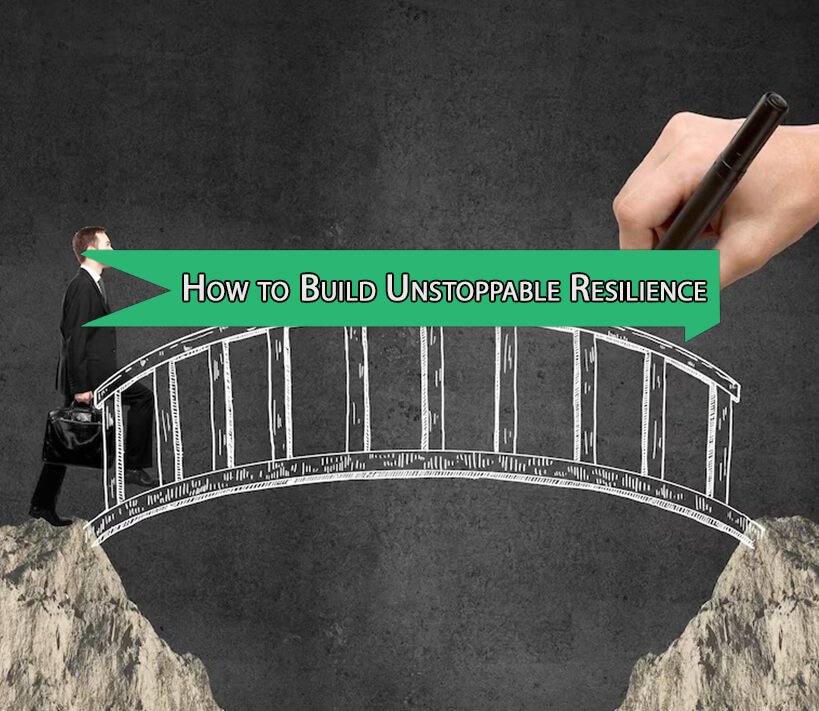How to Build Unstoppable Resilience is more than bouncing back after tough times; it is about becoming stronger through adversity. The path to personal growth is rarely smooth, and your resilience will truly shine during the rough patches. Learning how to build unstoppable resilience is essential for facing life challenges head-on, maintaining emotional stability, and achieving your goals, regardless of the obstacles.
At it is core, resilience is the ability to bounce back from challenges, adapt to adversity, or recover quickly. Mental fortitude helps us cope with stress, failure, and setbacks without allowing them to impact our future. Resilient people do not avoid challenges but rather fuel their personal growth through their experiences. In this blog, we will explore how we can build unstoppable resilience.
Why is Resilience Important?
Resilience is the key to mental toughness. Life does not always go according to plan, but a resilient mindset helps us move forward despite challenging circumstances. From navigating career setbacks to dealing with personal loss or illness, resilience allows people to persist and find new ways forward. Without resilience, getting stuck, discouraged, and overwhelmed is easy.
Steps to Build Unstoppable Resilience
Cultivate a Positive Mindset
The first step to building resilience is adopting a positive and realistic mindset. Resilient people do not ignore difficulties but believe they can overcome them. When people think about things realistically, they see challenges as opportunities, learn from them, and grow. This mental framework not only helps them tackle obstacles but also strengthens their psychoaura.
Strengthen Emotional Regulation
How a person responds to their emotions plays a vital role in resilience. If the situation is challenging and a person practices mindfulness or self-awareness, it helps them stay grounded. When you learn to manage your emotions, you can easily focus on solutions instead of dwelling on problems. By acknowledging and understanding your feelings, you can gain better control over your reactions, which empowers you to make clearer decisions even in stressful situations. This emotional regulation strengthens your resilience and enhances your ability to adapt to change, learn from setbacks, and maintain a positive outlook during challenging times.
Develop a Support System
Building resilience involves developing a strong support system. When individuals surround themselves with positive and supportive people, they receive assistance during challenging times. A robust support network offers emotional comfort, advice, and encouragement when facing difficulties. Whether it is family, friends, or colleagues, having people who understand and care helps overcome obstacles. Research indicates that social support is vital in fostering resilience and providing individuals with resources, encouragement, and understanding to navigate challenging times with greater strength and fortitude.
Learn from Past Challenges
Every setback carries a lesson. People should reflect on their past challenges and ask themselves what they have learned from those experiences. This reflective practice helps build resilience and enables individuals to identify patterns, strengths, and coping mechanisms that they can apply in future situations.
Set Meaningful Goals Settings
Setting meaningful goals is essential for building resilience. When people set clear and achievable goals, they create a sense of purpose and direction, which helps them stay focused during difficult times. Meaningful Goals motivate individuals to push through adversity, providing a tangible reason to persevere. These goals structure one efforts and serve as a reminder of what truly matters. By breaking down larger goals into smaller, manageable tasks, individuals can maintain progress and stay motivated, even when facing setbacks.
Practice Self Compassion
When a person practices self-compassion, building resilience becomes easier. This is because, through self-compassion, an individual treats themselves with kindness and understanding. Instead of being self-critical, they acknowledge their feelings and accept setbacks as part of life. This mindset allows them to move forward in life without the burden of unnecessary guilt and shame.
Develop Problem-Solving Skills
Developing strong problem-solving skills is a vital step in building resilience. When faced with challenges, resilient individuals approach the situation with a clear, strategic mindset. Rather than feeling overwhelmed, they break the problems into manageable parts and work through each step methodically. This process reduces stress and allows them to focus on finding solutions rather than dwelling on the issues. By taking a systematic approach, individuals are better able to handle difficult situations without becoming discouraged, fostering greater adaptability and confidence.
Conclusion
Building unstoppable resilience does not happen overnight. It is a lifelong process that requires patience, practice, and willingness to grow. By cultivating a positive mindset, learning from past experiences, and relying on your support system, you will develop the mental toughness to face challenges confidently and gracefully.




